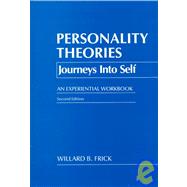
Note: Supplemental materials are not guaranteed with Rental or Used book purchases.
Purchase Benefits
What is included with this book?
| Preface to the Second Edition | vii | ||||
| Acknowledgments | viii | ||||
| Notes to the Student | ix | ||||
| Notes to the Instructor | x | ||||
| Unit One. Childhood Recollections and Experiences | 1 | (7) | |||
|
1 | (2) | |||
|
3 | (3) | |||
|
6 | (1) | |||
|
6 | (1) | |||
|
7 | (1) | |||
| Unit Two. Sigmund Freud and Psychoanalytic Theory | 8 | (13) | |||
|
9 | (3) | |||
|
12 | (2) | |||
|
14 | (2) | |||
|
16 | (1) | |||
|
17 | (3) | |||
|
20 | (1) | |||
| Unit Three. Alfred Adler and Individual Psychology | 21 | (16) | |||
|
22 | (3) | |||
|
25 | (2) | |||
|
27 | (1) | |||
|
28 | (3) | |||
|
31 | (2) | |||
|
33 | (3) | |||
|
36 | (1) | |||
| Unit Four. Carl Jung and Analytical Psychology | 37 | (11) | |||
|
37 | (5) | |||
|
42 | (2) | |||
|
44 | (2) | |||
|
46 | (2) | |||
| Unit Five. Karen Horney and Psychoanalytical Social Theory | 48 | (13) | |||
|
49 | (2) | |||
|
51 | (3) | |||
|
54 | (2) | |||
|
56 | (1) | |||
|
57 | (3) | |||
|
60 | (1) | |||
| Unit Six. Erik Erikson and Psychosocial Theory | 61 | (11) | |||
|
61 | (1) | |||
|
62 | (2) | |||
|
64 | (3) | |||
|
67 | (2) | |||
|
69 | (1) | |||
|
70 | (1) | |||
|
71 | (1) | |||
| Unit Seven: Albert Bandura and Social Learning Theory | 72 | (11) | |||
|
72 | (3) | |||
|
75 | (1) | |||
|
76 | (5) | |||
|
81 | (1) | |||
|
82 | (1) | |||
| Unit Eight: Gordon Allport and Trait Theory | 83 | (11) | |||
|
84 | (2) | |||
|
86 | (1) | |||
|
87 | (2) | |||
|
89 | (4) | |||
|
93 | (1) | |||
| Unit Nine: Abraham Maslow and Self-Actualization Theory | 94 | (11) | |||
|
94 | (2) | |||
|
96 | (2) | |||
|
98 | (3) | |||
|
101 | (2) | |||
|
103 | (1) | |||
|
104 | (1) | |||
| Unit Ten: Carl Rogers and Self-Theory | 105 | (16) | |||
|
105 | (1) | |||
|
106 | (3) | |||
|
109 | (4) | |||
|
113 | (1) | |||
|
114 | (3) | |||
|
117 | (4) | |||
| Appendix A. Maslow's D-Love and B-Love | 121 | (1) | |||
| Appendix B. Rogers and Client-Centered Psychotherapy | 122 | (1) | |||
| Appendix C. Rogers and Empathic Understanding | 123 | (2) | |||
| References | 125 | (1) | |||
| About the Author | 126 |
The New copy of this book will include any supplemental materials advertised. Please check the title of the book to determine if it should include any access cards, study guides, lab manuals, CDs, etc.
The Used, Rental and eBook copies of this book are not guaranteed to include any supplemental materials. Typically, only the book itself is included. This is true even if the title states it includes any access cards, study guides, lab manuals, CDs, etc.